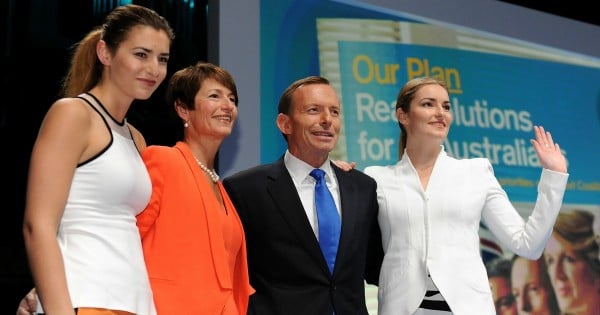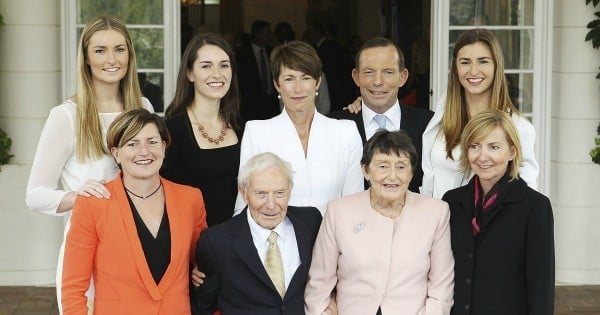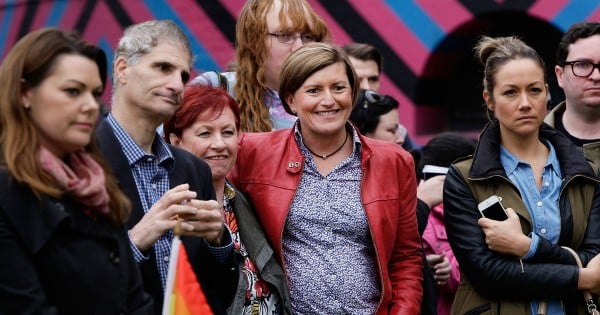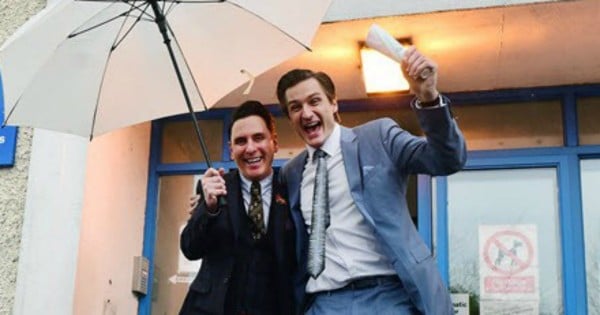
Christine Forster met her partner Virginia Edwards 13 years ago when they had sons at the same school. Coming out and becoming a couple was a huge decision for both women, who were both married when they met.
Forster is former PM Tony Abbott’s sister and Liberal Party Councillor in the City of Sydney. She disagrees completely with her brother that gay marriage will “erode” conventional marriage and strongly believes everyone has the right to create their own family – whatever that family may look like.
Christine writes exclusively for Mamamia on the issue that has divided them…
Last week my older brother, former Australian Prime Minister Tony Abbott, gave a speech in the US which he titled the “defence of families.”
He and I have a well-documented difference of opinion on whether or not Australian legislation should be changed to enable two men or two women to marry.
Tony has again clearly put his view that the “essence of marriage” is “one man and one woman open to children.” In contrast, it’s my firmly held belief that the legal right to marry one other person, as it is defined by government legislation, should be extended to all men and women, irrespective of the gender of their chosen partner.





Top Comments
Civil conversation or not (and I firmly believe in civil conversation) I will never understand the anti marriage equality brigade.